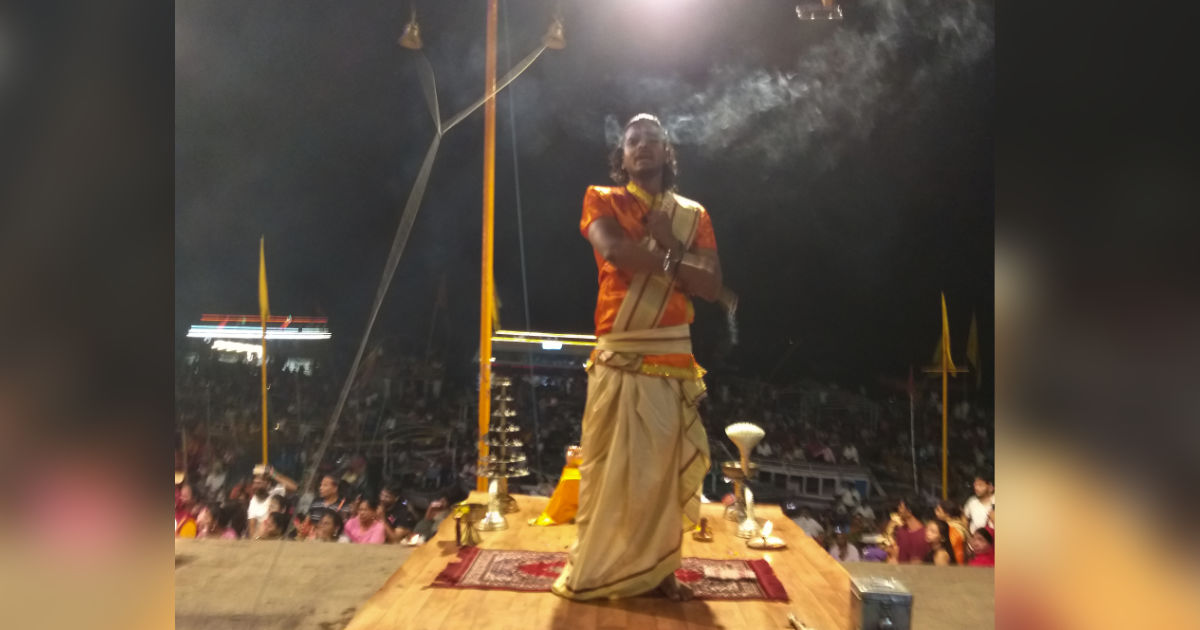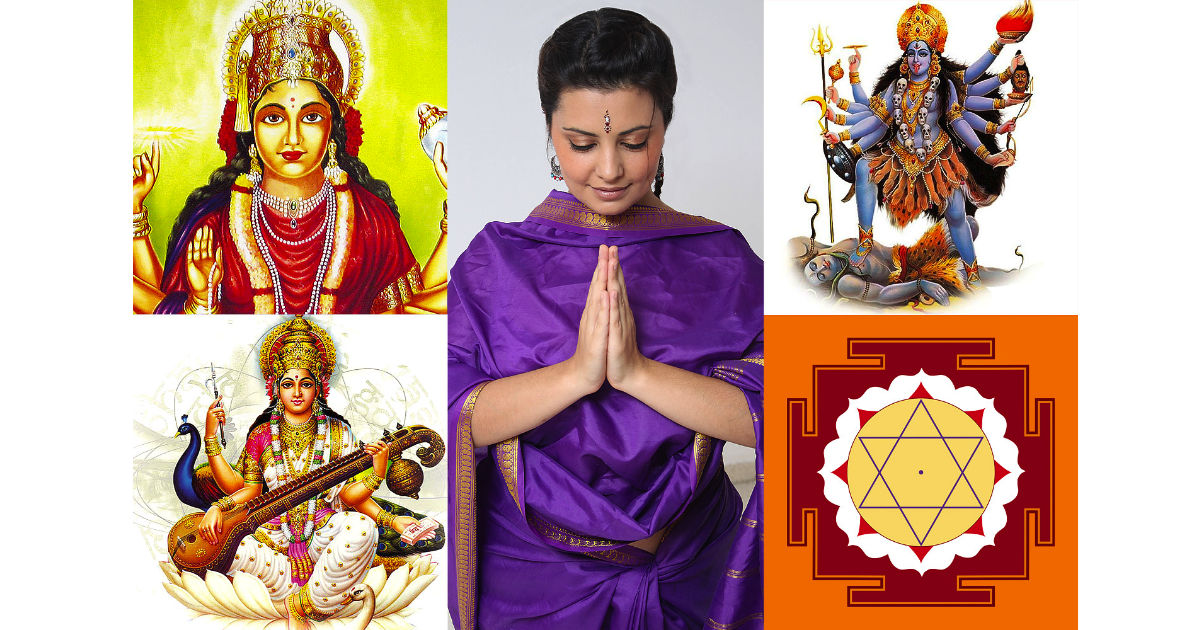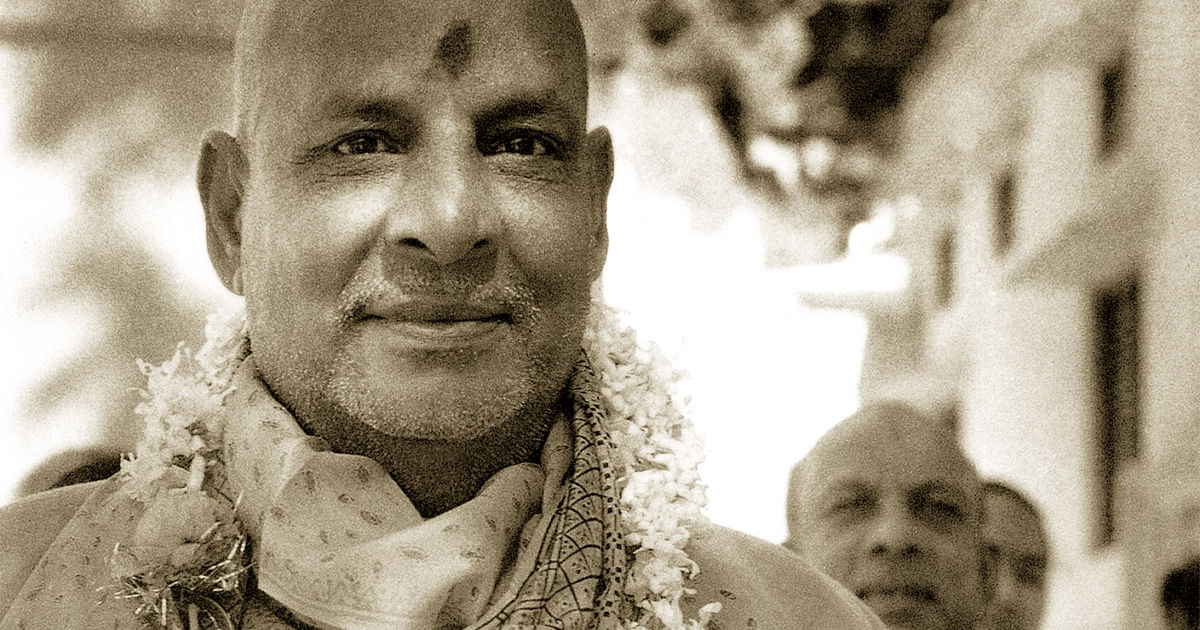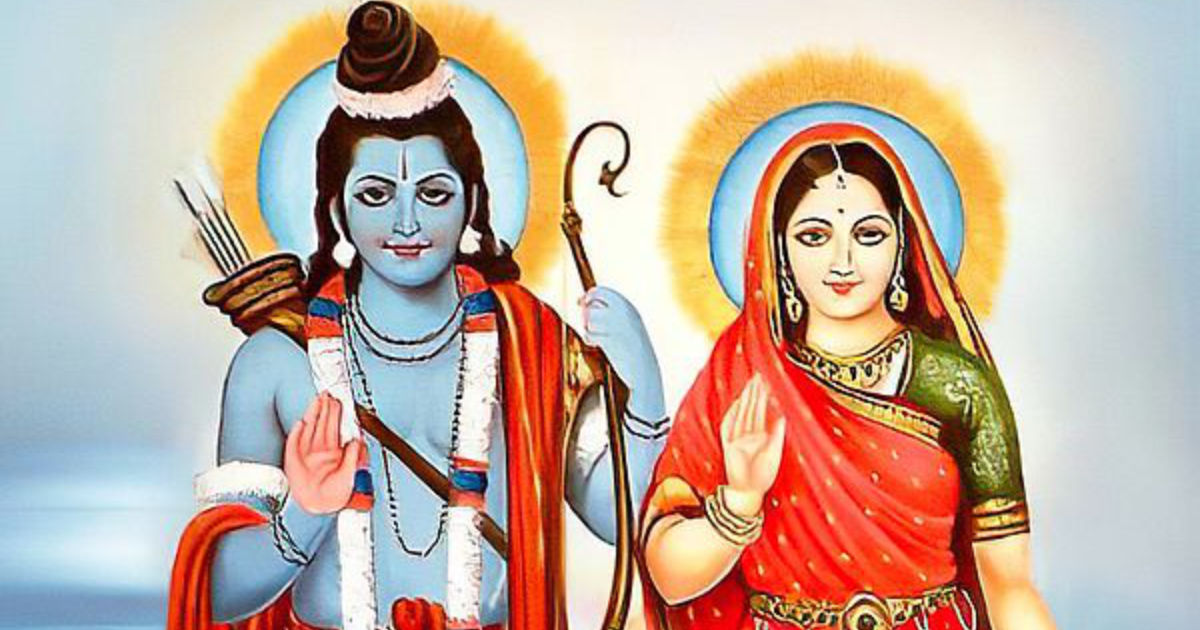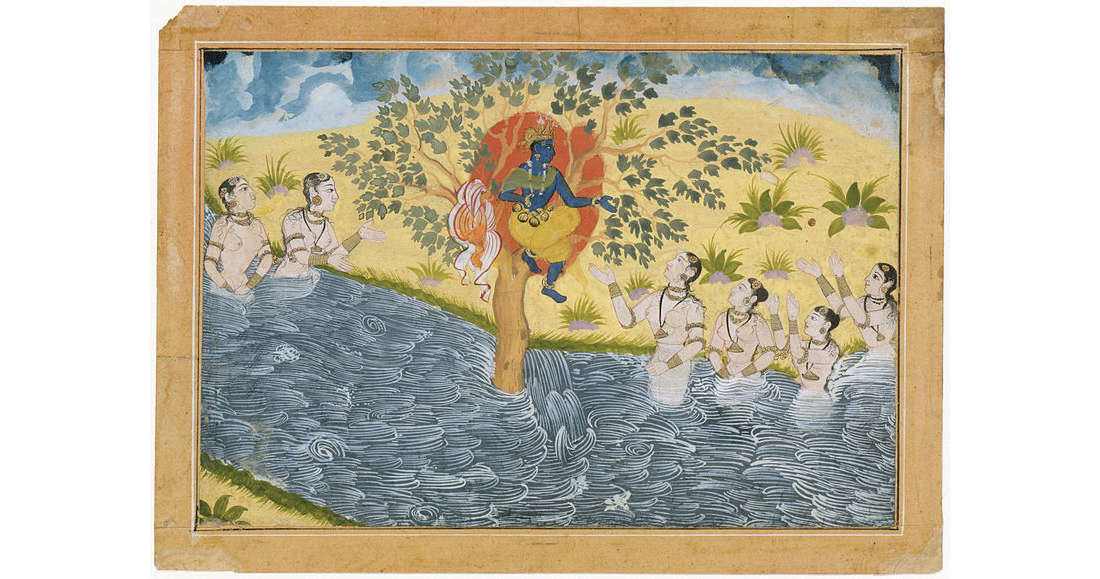What is the meaning of quota? It means an allocation, share or allowance. How often have we felt that we have been receivers of unrequited love? And we have not realized that we never shared our love. Continue reading
Tag Archives: love
262 – Mother Ganga
A couple of days ago I attended the Ganga arati in Varanasi. It was an experience of a lifetime. Nobody was pushing and every one’s eyes were open with avid adoration and devotion. Hands joined in the prayer pose (Namaste). Of course, hands unjoined to take photos with their phones. There was no chatter, we all watched with love and fervor for Ma Ganga, the river which washes our karmas away. Continue reading
227 – My soul
If there is light in the soul, there will be beauty in the person. If there is beauty in the person, there will be harmony in the house, there will be order in the nation. If there is order in the nation, there will be peace in the world. Continue reading
225 – Daily Spiritual Practices
In order to practice a spiritual life and enjoy the fruit of the sadhana, it must become a part of us. Easter is upon us and we associate it with the material things like gifts and chocolates. Easter is a time of new beginnings and renewal. However it is not only when Easter is approaching that we should think that we should renew ourselves spiritually.
Let us see what we can incorporate in our daily life:
- Become observant and observe the spiritual glow of people, places, and things. It is a sign of rebirth.
- Give your undivided attention to whatever you are doing and be aware of the constant renewal of life around you.
- Become aware of God’s mercy in the past and his discretion in the future. Live in the present, giving it your undivided attention.
- Practice compassion, sensitivity and be aware of the pain and suffering of others.
- When you become aware, neutral and detached you are connected to the universe.
- Prayers are an essential part of our lives.
- Forgiveness is a gift you give yourself.
- Hope and gratitude go hand in hand. Hope is very powerful and being empathetic to the needs of others, we gift them hope. Gratitude is that never take anything for granted.
- Love and nurture yourself and listen to the voice of the cosmos.
It is not difficult to include these practices. Even if we start with one, we are on the path to welcome Easter and it becomes a way of life for us.
“Lord, we lift our eyes to you. As the sun rises, may this moment stay with us, reminding us to look for the beautiful colors of promise in your word. Lord, we lift our prayers to you. As the dew falls, may we breathe this morning in and know that like the earth, you sustain us, keep us and work within us always.”
Aim Hrim Klim
Photo by Ashley Inguanta on Unsplash
216 – Enchantment of the Mother
“The most powerful method of obtaining God’s grace is worship of the Divine Mother. She is the embodiment of compassion and kindness, the pure image of mother love. She is the ocean of forgiveness. Whether it is the Divine Mother or my mother, wherever there is mother’s energy, it is always in the image of love and kindness. Her real form is forgiveness, no matter how naughty her children maybe.”
Swami Satyananda Saraswati. Continue reading
199 – Love, Serve and Give
Swami Sivananda’s favourite quote to his disciples was “Love, serve and give.” They in turn said it to their disciples and all of us also repeat it to our students. What does it mean? Continue reading
163 – What is love
How do we become capable of love? Osho explains it very beautifully. Love is spontaneous. It cannot be controlled. We cannot make love; we cannot do anything about it. And the more we do, the more we will miss it. We have to allow it to happen. We are not needed for it. We cannot absent ourselves and therefore, we have become incapable of love. Continue reading
097 – True love
The message that Rama sent to Sita through Hanuman, breaks your heart. He said “Since you have gone, the rain that falls is boiling, the birds that sing prick my heart.” Rama said, Continue reading
078 – Two Shlokas
“Under the shade of the Banyan tree, the old guru and the young disciple are seated. The Guru is not saying anything, but the questions and doubts of the disciple are getting cleared one by one.” Swami Satyananda said that when he sat with Swami Sivanananda this happened to him. The questions ceased and the intellect eased. A man who is really great does not know he is great. He is humble because he is practicing or acting with humility. Continue reading
025 – Love, serve, give
Loving is unconditional. We give love in order to receive love. Whatever we do is guided by our conditional love. It is wonderful when you are in love, but what happens when it is unrequited love. Continue reading
018 – The day for Shiva
Today is Monday, and it is the day for Shiva.
Close your eyes and visualise Shiva. He is blue in colour, he has a serpent wrapped around his neck. The Ganga is cascading down from his head. He has his pet bull, Nandi by his side. There is a crescent moon nesting in his top knot. He is holding a trident. Continue reading
“Karma Yoga” Yoga Of Love – James Swartz
Om! Karma yoga stage: Love of God becomes a discipline. Basic universal rules Moral dimension in this universe. Noninjury. Every human being has a different kind of nature. There is not one thing that isn’t God. What is karma yoga? You have the right to act. Who gives the result?
Karma yoga stage: Love of God becomes a discipline. Basic universal rules Moral dimension in this universe. Noninjury. Every human being has a different kind of nature. There is not one thing that isn’t God. What is karma yoga? You have the right to act. Who gives the result?
Here you can find:
Our online channels:
You can donate here
💛 Om Shanti 🕉
Podcast: Play in new window | Download
Subscribe: RSS
Value management and attaining unconditional love – James Swartz – Yoga of Love, Bhakti Sutra
In the satsang we create a sattvic atmosphere that makes it easier
to focus on the knowledge. It is important to keep the knowledge
active when the mind is rajasic or tamasic. When the values are
assimilated the mind stays sattvic and the knowledge stays active.
A change in your lifestyle may be necessary to make the mind
sattvic enough. Deliberate thinking is observing the mind, step
back and think about it before you act. If necessary pause, collect
your thoughts, you can edit your thoughts as they come up. Pay
attention that the information is appropriate, kind, timely and
credible. Impulsive thinking has the need to react immediately. 11.
Dispassion towards sense objects, for example music, food, sex. No
obsession, except obsession for Vedanta. Assimilating these values,
starting with an intellectual understanding brings you a lot of
experiential and emotional satisfaction. 12. Renunciation and
Austerity. Eagerness to get rid of things and to live simply. Do not
accumulate stuff. 13. Absence of egoism. It’s about a simple
recognition about the difference between my (real) Self and the ego
(reflected self). Sadhana: Whenever you say the ‘I’ in the day-to-day
activities ask yourself which ‘I’ is meant. This helps to
discriminate. Keep track of your speech. Keep a short leash on your
ego and let it walk in front of you. 14. Appreciation of time. Don’t
waste time and go on with self-inquiry. 15. Absence of ownership. Is
it your body or your children? Everything comes from isvara.
Sadhana: Pay attention to the word ‘mine’. 16. Absence of
excessive attachment to loved ones. Serve the people in your field
with love but don’t get excessively attached. 17. Sameness of mind
under all circumstances. Cultivate the value of a quiet mind and for
sattva. Read the book Yoga of the three energies. Importance of
the management of the gunas. You can remove most of the
physical pain with guna management. Most of the daily pains are
caused by blocked prana or tamasic energy. 18. Non-dual devotion
to God. 19. Love of solitude. You can hear the silence speaking.
Gradually work to it if you have a busy life. 20. Absence of craving
for company. People can be in your life but you should have no
need for it. 21. Constant practice of self-knowledge. 22. Value for
completing or resolving things. Too much agitation prevents you
from finishing projects and brings to starting new ones. Karma yoga
reduces your karmic load. The degree to what you reduce your
karmic load is the degree to what your mind is peaceful. Tamasic
people don’t want to complete things. Rajasic people want to
complete things but they are too busy to do the completion.
Consequence is that they are always agitated. 23. Precaution,
deliberation and restraint. Think ahead and make a plan before you
judge. Value for holding back. Rajasic people want to do things
immediately. If you can’t hold on you find yourself doing a lot of
things you don’t have to do. 65. Offering all activities to the Lord,
one should direct negative feelings – desire, anger and pride – to
Him. 66. Transcending the gunas, the devotee should act only out
of pure love of God and remain perpetually in the relationship of a
servant to his master or a lover serving her beloved. 67. Among the
Lord’s devotees, the greatest are those who are dedicated solely as
intimate servants. Sakhya bhava and further bhavas. Secret love
affair with God behind the back of your husband. What is your
dominant way to express your love? Love with understanding is
better than only emotional love, for example sakhya bhava. 68.
Conversing among one another with throats choked, hair
standing on end and tears flowing, the Lord’s intimate servants
purify their own followers and the whole world. 69-83. 84. Anyone
who has faith in these auspicious teachings will attain non-dual
devotion. Indeed he or she will attain unconditional love.
More: Vedanta Seminars.
More on: Vedanta.
Learn more about: Yoga Vidya.
You can sign up for: our online seminars.
You can also support us by: donating.
Podcast: Play in new window | Download
Subscribe: RSS
Jealousy, consistent effort and mastery of the mind – James Swartz – Yoga of Love, Bhakti Sutra
These values are qualifications for moksha. When you are
spiritually stuck it’s probably because one or more spiritual values
are only partially assimilated. When you are not up to the mark,
pick a value and work on it for 1-2 months. It’s a constant practice.
When you find a consistent pattern of frustration, anger or
depression there is some value that needs work. Apply the opposite
value. If you are a selfish person then learn how to be generous.
Value management is extremely important. 8. Jealousy and Envy:
Rajas is the problem. Don’t compare yourself to others. If you don’t
know who you are the bad values are obstacles and the good
values are helpful. Pay attention with comparisons that make you
feel inferior. Nobody is trying to make you feel inferior. You have to
make yourself feel inferior or superior. Comparison leads to
competition and competition leads to violence, anger and
sometimes destruction. Jealousy and Envy are transformed anger
and they usually lead to depression. You are never jealous of a
whole person only of an aspect. In other words, jealousy is a
projection that masks an insufficient appreciation of my own nature
and the abundance of good qualities that spring from it. A self-realized
person is never jealous, because she is mindful of her
fullness. The Bible’s statement that God is “a jealous God” means
that when you know God you cannot love anything else. Shiva
means what is always good at any place and time, that’s me the
self. Ask yourself: ‘Why do I feel guilty?’. Without following dharma you
won’t get enlightened. When I feel jealousy I should apply the
opposite thought. If you realise that you are greedy try to be
generous. Give 5 or 10 Euros to a beggar. When you break one of
isvaras rules you should feel guilty. 9. A consistent effort to achieve
a stated goal is required for self-knowledge because self-knowledge
is not partial knowledge like worldly disciplines. Tapas with
steadiness and devotion over a long period of time is necessary for
self-realization. As the gunas are constantly changing the tapas
should take guna management into account. 10. Mastery of mind:
4 types of thinking. Impulsive, mechanical, deliberate thinking and
spontaneous thinking. Idea of instant gratification is a problem.
Fast food: I want my food immediately. The mantra of impulsive
people is: If it feels good do it. Better mantra: if it feels good think
about it before you do it. You are bored to death doing and thinking
the same things. Then you need entertainment, for example
different food every day: You live to eat. If your mind is mechanical
or impulsive it is not under your control. Convert these types of
thinking to deliberate thinking with the help of Vedanta. Applying
the opposite thought or always thinking from a non-dual
perspective. Intuition is normally impulsive thinking. Learn to think
like god from a perspective of love. Learn to think useful thoughts
and avoid useless thoughts. Channeling. Value of visions. Meaning
of angels and demons. Being separated from god is painful.
More: Vedanta Seminars.
More on: Vedanta.
Learn more about: Yoga Vidya.
You can sign up for: our online seminars.
You can also support us by: donating.
Podcast: Play in new window | Download
Subscribe: RSS
Gunas and value of values – James Swartz – Yoga of Love, Bhakti Yoga, Bhakti Sutra, Narada
1. Pride, Vanity, Conceit, Self-Glorification: Any form of hurt is due
to pride, an inflated ego, one that is excessively attached to what
it thinks it knows, believes, possesses or how it looks. When you
expect other people to make you feel good you are going to be
hurt because they do those things that make them feel good.
Often they waste time and energy trying to save face or plotting
revenge. Solution to these problems is inquiry into isvara. Where
did your special qualities come from. 2. Pretension, Affectation:
Claiming something that has no basis in fact. Creating fake
identies brings a lot of stress. Problem of judging your value in
comparison to other people. 3. Non-Injury: Mutual expectation of
non injury. It may be injury if vegetarians hurt the feelings of non
vegetarians. A bad thought doesn’t go to the other person. It stays
in your mind and hurts yourself. You should think the opposite
thought. Think before you speak or act. Only help people when
they ask you for help. 4. Accommodation, Commodiousness:
Making room for people in your life, being not too busy to pay
attention to other people. People want to be heard. At least you
can spend enough time to find out what others want from you.
Accomodation to the needs of others is a sign for a sense of nonduality.
If you are aiming for sainthood, non-injury and
accommodation are the minimum requirements. Wisdom and
scriptural knowledge are not necessary, only these values. 5.
Straightforwardness, Truthfulness. Your actions should be in line
with your thoughts. Diplomacy and manners are helpful to
communicate unpleasant information successfully. 6. Service to
the Teacher. By keeping your mind on the Self, doing your karma
yoga. The teacher has nothing to gain. Teacher wants to share the
love of god with you. 7. Cleanliness: Outer cleanliness. A mind with
no secrets. Transparency. Being natural. The bad stuff was given
to you by isvara too. It is not your fault. When you acknowledge
your vulnerability and your selfishness you are over it.
More: Vedanta Seminars.
More on: Vedanta.
Learn more about: Yoga Vidya.
You can sign up for: our online seminars.
You can also support us by: donating.
Podcast: Play in new window | Download
Subscribe: RSS


